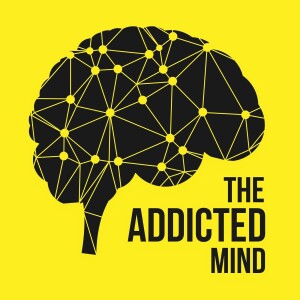
181: How TMS Treats Addiction, Depression, & Other Mental Health Issues with Ben Spielberg
 2022-05-16
2022-05-16
Depression sucks and it’s such a hard place to be. On the other hand, addiction used to be framed as this lack of moral character or willpower, and addiction, too, is a very hard place to be. But there's hope.
On this episode, Duane speaks with Ben Spielberg, the founder and CEO of TMS & Brain Health clinics. Ben is a specialist in neuroscience, neuromodulation, and neuroimaging. Today, Ben is going to talk about TMS or transcranial magnetic stimulation, and how TMS offers hope to people struggling with addiction and its underlying mental health issues such as depression and anxiety, and ultimately, returning joy and passion back to their lives.
Ben started working in the field of mental health in 2010 as a biofeedback technician at a Substance Abuse and Recovery Treatment Center in Los Angeles. Part of his work was doing neurofeedback and he was just fascinated at how it impacted people, becoming more resilient to stressors without involving any medication or intervention.
Eventually, Ben got a master's degree in neuroscience at Columbia with the hope to specialize in the overarching field called neuromodulation, which refers to evidence-based, nonpharmaceutical ways to create real changes in the brain.
With neurofeedback, all people need to do is to show up. It doesn't really matter what you’re thinking about. Your brain is picking up on the signals regardless. Listen in as Ben sheds some light on how TMS targets and activates specific areas of the brain that help reduce depression, anxiety, and all other underlying issues that lead to addiction.
In this episode, you will hear:
- Ben’s experience in neurofeedback and neuromodulation
- The concept of neuroplasticity
- What is TMS and how does it work?
- Cognitive-behavioral therapy vs. TMS
- Types of issues TMS can treat
- The role of ADHD in addiction
- The history of TMS
Key Quotes:
[05:54] - "With neurofeedback, all you have to do is show up. It doesn't really matter what you think about. Your brain is picking up on the signals regardless."
[09:53] - "There's a part of the brain called the left dorsolateral prefrontal cortex... it's the left top side of your head and that area has been shown to be underactive in people with depression."
[10:35] - "When people do TMS typically five days a week, week by week, the symptoms of depression start to go away, just as this other part of the brain starts to come back online."
[12:55] - "Cognitive behavioral therapy is definitely an evidence-based treatment for depression. But when it's not working, there's nowhere to go unless you're actually creating real changes in the brain."
[15:37] - "People with ADHD are much more likely to be addicted than a neurotypical person… as well as way more likely to be incarcerated and a really a number of issues in life."
[17:26] - "ADHD is an issue of sustained focus, whereas normally, people have the ability to continue focusing on things when they want to, and they're not necessarily bothered by any external or internal stimulus."
[29:41] - "Addiction is really just a symptom of some other underlying mental health diagnosis."
If you really enjoyed this episode, we’ve created a PDF that has all of the key information for you from the episode. Just go to the episode page at www.theaddictedmind.com to download it.
Supporting Resources:
TMS & Brain Health Clinics
https://www.tmsbrainhealth.com/
Episode Credits
If you like this podcast and are thinking of creating your own, consider talking to my producer, Emerald City Productions. They helped me grow and produce the podcast you are listening to right now. Find out more at https://emeraldcitypro.com Let them know we sent you.
Learn more about your ad choices. Visit megaphone.fm/adchoices
More Episodes
Create your
podcast in
minutes
- Full-featured podcast site
- Unlimited storage and bandwidth
- Comprehensive podcast stats
- Distribute to Apple Podcasts, Spotify, and more
- Make money with your podcast
It is Free
- Privacy Policy
- Cookie Policy
- Terms of Use
- Consent Preferences
- Copyright © 2015-2024 Podbean.com





